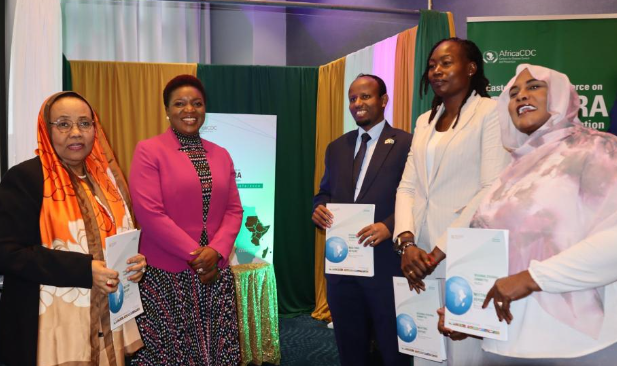Africa Launches Lab Network, Cholera Taskforce To Contain Disease
In April 2024, health officials from 14 Eastern African countries met in Kenya to start two big public health projects with help from the Africa Centres for Disease Control and Prevention (Africa CDC). Two of these projects are RISLNET (the Eastern Africa Regional Integrated Surveillance and Laboratory Network) and the Eastern Africa Regional Cholera Taskforce.
Establishing the Eastern Africa Regional Cholera Taskforce
The Eastern Africa Regional Cholera Taskforce was made because of the worrying rise in cholera cases in the area. The Africa CDC is in charge of the task group, whose goal is to make sure that all of the regions’ plans for dealing with and preventing cholera are consistent. This partnership aims to improve the region’s ability to handle outbreaks by making it easier to share experiences and improve plans for a coordinated reaction. Because cholera is so common over 62,000 cases and 1,200 deaths were reported in the first few months of 2024 alone these steps are very important.
What is RISLNET?
At the same time, the ministers started the Eastern Africa Regional Integrated Surveillance and Laboratory Network (RISLNET) to improve the ability to monitor and respond to health problems across Eastern Africa. This network connects different health monitoring and lab systems that are already in place. These systems are run by public, business, and educational institutions. RISLNET’s main job is to help stop, find, and quickly respond to public health threats, which makes the general health security of the region better.
Economic Impact and Advocacy for Health Investment
Africa’s disease load, which is thought to take 630 million years of life across the continent every year, had serious social and economic effects that were talked about at the event. It is both important for public health and the economy to deal with these problems. The goal is to turn health care from something that is seen as a liability into an important resource for long-term growth.
Strategic Directions and International Cooperation
The projects are in line with the strategic objectives set by the Africa CDC for 2023–2027, which are to improve public health infrastructure and capacity. This includes encouraging top-notch study, encouraging new ideas in public health, and making national public health institutes stronger. The dedication to these goals is shown by the Kenyan government’s support, which includes a large amount of money set aside to build the Eastern Africa Regional Coordinating Centre in Nairobi.
More About Africa Centres for Disease Control and Prevention (Africa CDC)
- Foundation:The Africa Centres for Disease Control and Prevention (Africa CDC) was set up by the African Union in reaction to the Ebola outbreak. It began officially in January 2017.
- Headquarters: The Africa CDC is based in Addis Ababa, Ethiopia, and its main goal is to help member states with their public health efforts, especially those that aim to prevent and control disease.
- Regional Collaborating Centers: Five Regional Collaborating Centres are situated in Egypt, Gabon, Kenya, Nigeria, and Zambia. They are where Africa CDC does its work. These centres make it easier for people in the region to work together and improve Africa’s ability to handle health crises.
- Core Functions: The group is very important for keeping an eye on diseases, responding to emergencies, and building up people’s skills all over Africa. This makes sure that member states are better prepared to deal with threats to public health.
- COVID-19 Response:The Africa CDC was very important in Africa’s approach to the COVID-19 pandemic. It started projects like the Partnership to Accelerate COVID-19 Testing (PACT) and the Africa Medical Supplies Platform to improve the ability to test and make sure there were enough medical supplies.
- Continental Health Security: The Africa CDC’s many programs and projects continue to improve health security across the continent by encouraging member states to work together and share resources so that they can better deal with public health problems.
Month: Current Affairs - May, 2024
Category: International / World Current Affairs








